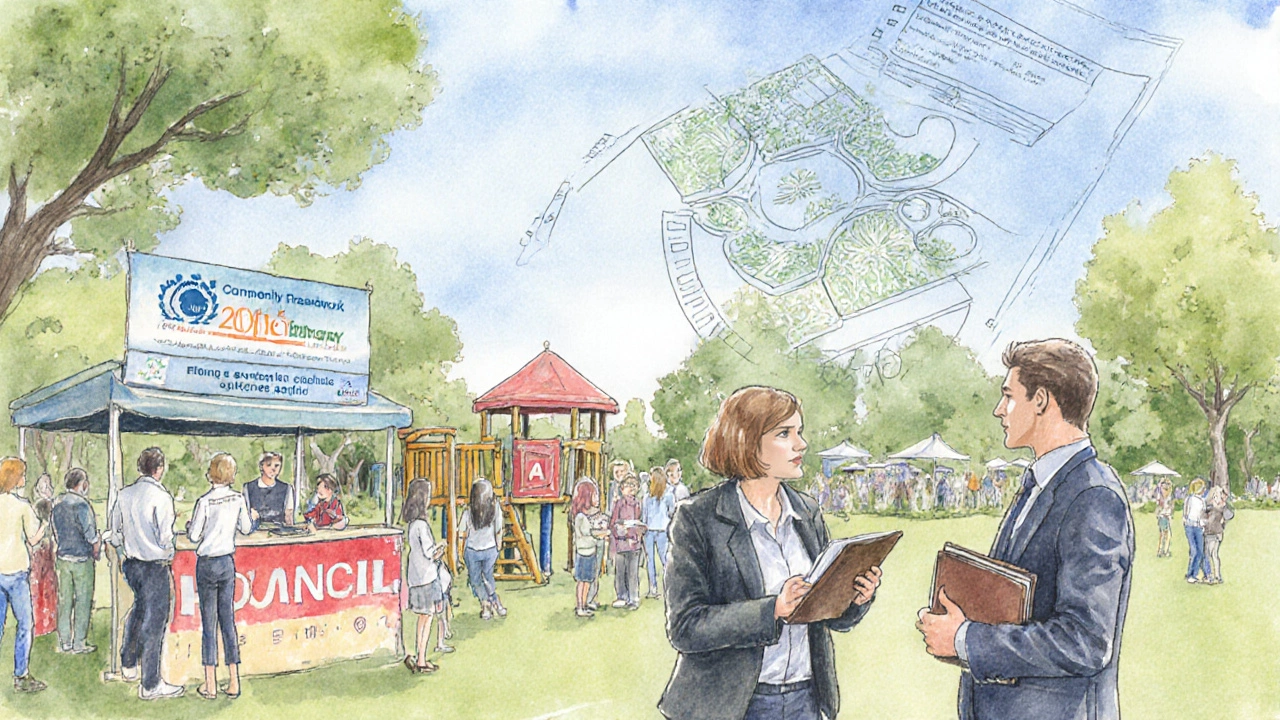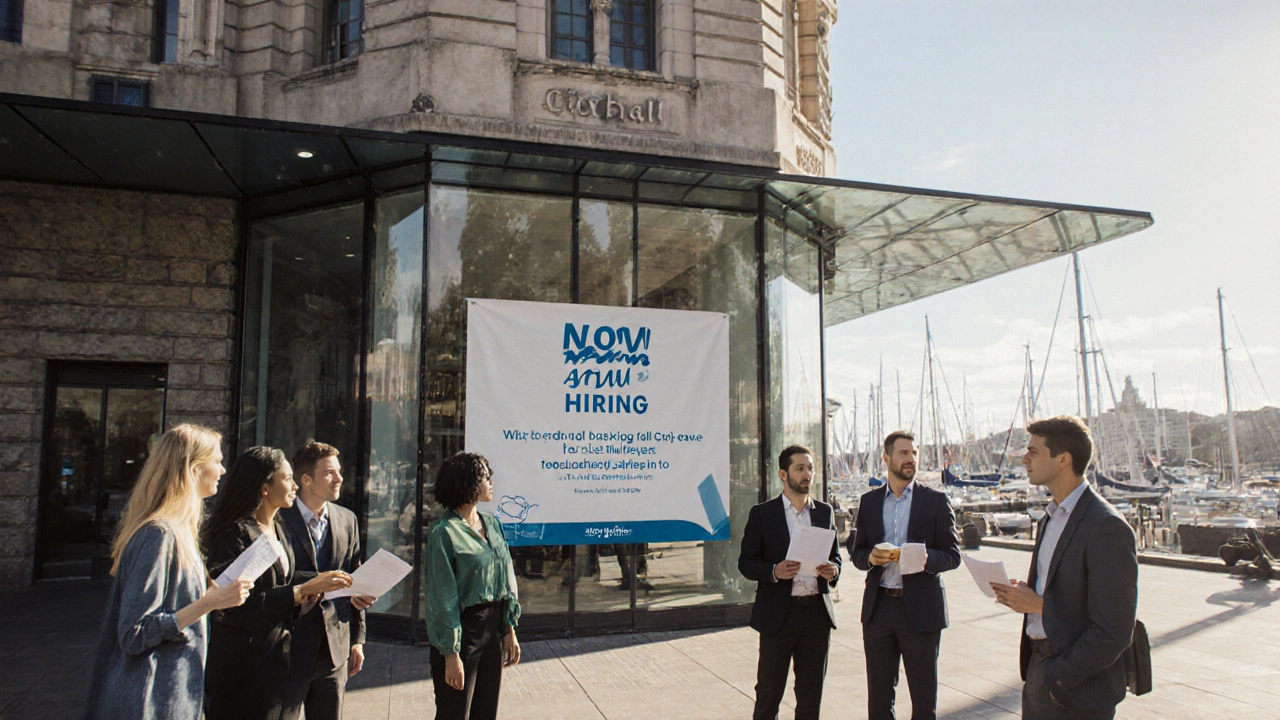When you hear the term Local Government Job is a role within a city, district, or regional council that delivers public services, you might wonder how tough the hiring process really is.
Understanding the local government job market
Local councils in New Zealand, Australia, the UK and many other democracies employ around 30 % of the public‑sector workforce. In Wellington alone, the council advertises roughly 150 positions each year, ranging from community development officers to senior engineers. The demand spikes when a council launches a new strategic plan or when a retirement wave creates multiple vacancies. Because the pool is limited, competition can feel fierce, but the process is transparent and, with the right preparation, very manageable.
Key entry routes and eligibility criteria
Unlike central‑government agencies that often require a national civil‑service exam, most local authorities rely on a Public Service Commission‑approved Competency Framework. Employers look for evidence that you meet the competency levels for the advertised grade. Common prerequisites include:
- New Zealand residency or a valid work visa.
- Relevant qualifications - a bachelor’s degree for professional roles, or a Certificate IV for technical positions.
- Minimum years of experience (usually 2-5 years for mid‑level posts).
- Clear criminal‑record check and, for some roles, a driver’s licence.
Once you meet the basics, you can apply through the council’s Job Application Portal. The portal asks for a tailored resume, a cover letter that maps your skills to the competency statements, and sometimes a short situational‑judgement test.
The recruitment timeline - what to expect
- Job posting: Varies from 2 weeks to a month, giving you time to prepare a strong application.
- Shortlisting: Recruiters compare each applicant against the competency framework. Automated screening tools may flag missing keywords.
- Assessment stage: This could be a written test, a practical case study, or a panel interview. Some councils also run a Civil Service Exam for graduate‑level positions.
- Interview: Conducted by an Interview Panel that usually includes the hiring manager, a HR officer, and a senior employee from the same department.
- Reference checks & offer: After a successful interview, the council contacts your referees, clears your background, and sends a formal offer.
The whole cycle normally takes 4-8 weeks, though high‑profile senior roles can stretch to three months.

Tips to boost your chances
- Mirror the language: Use the exact competency wording in your cover letter. If the ad mentions “collaborative problem‑solving,” write, “I have demonstrated collaborative problem‑solving by …”.
- Quantify achievements: Replace vague statements with numbers - “Reduced waste collection costs by 12 % over 18 months”.
- Network locally: Attend council‑hosted community events or join local‑government LinkedIn groups. Knowing a current employee can give you insider insight into the Recruitment Process.
- Practice situational tests: Many councils use the “Behavioural Event Interview” format. Write down past situations that showcase the required competencies and rehearse concise STAR (Situation‑Task‑Action‑Result) answers.
- Prepare for the panel: Research the council’s strategic priorities, recent projects, and budget allocations. Being able to link your experience to current initiatives impresses interviewers.
Local Government vs. Central Government - a quick comparison
| Aspect | Local Government Job | Central Government Job |
|---|---|---|
| Geographic focus | Community‑level services (e.g., waste, parks) | National policy and administration |
| Hiring authority | Individual council HR departments | National civil‑service commissions |
| Typical qualifications | Local‑relevant diplomas, NZQA certificates | Often higher‑level degrees, national exams |
| Career progression | Move between councils or into senior local leadership | Potential for national‑level senior roles |
| Work environment | Smaller teams, direct community interaction | Larger bureaucracies, policy‑driven focus |
Both paths offer stability and good benefits, but local positions often provide faster impact visibility - you can see a park upgrade you helped plan within a year.

Common pitfalls and how to avoid them
Many applicants stumble at the same points:
- Generic resumes: A one‑size‑fits‑all CV gets filtered out. Tailor each resume to the specific grade and competency set.
- Missing documents: Forgetting a working rights declaration or a police check delays the offer.
- Overlooking local knowledge: Councils value candidates who understand the community’s demographics, cultural events, and local infrastructure.
- Poor interview prep: Treat the interview like a case study - bring evidence, ask insightful questions about the council’s strategic plan.
Address each by creating a checklist before you hit “Submit”.
Resources to keep you on track
Below are free and paid tools that many successful candidates swear by:
- NZ Civil Service Exam Guide (PDF): Offers sample questions and answer keys for entry‑level graduate posts.
- Local Council Career Pages: Each council lists current Council Vacancy announcements and often provides tips on writing a tailored application.
- Competency Framework Workbook: A printable worksheet to map your experiences to each competency statement.
- Mock Interview Services: Websites like GovInterview.co.nz charge a modest fee for a simulated panel interview with feedback.
- Networking Groups: Join “Public Sector Professionals NZ” on LinkedIn - members regularly share insider info about upcoming hiring rounds.
Combine these resources with a disciplined schedule, and you’ll convert the myth of “hard to get a job” into a concrete plan.
Final thoughts
Getting a local government jobs position does require preparation, but the barriers aren’t insurmountable. Focus on matching the competency framework, showcase measurable achievements, and stay informed about each council’s hiring calendar. With those steps, you’ll turn a competitive market into a series of achievable milestones.
What qualifications are usually required for entry‑level local government positions?
Most entry‑level roles require a New Zealand Certificate IV or a bachelor’s degree related to the field (e.g., urban planning, environmental science). Some positions accept relevant work experience in lieu of formal qualifications.
How long does the hiring process typically take?
From the job posting to an offer, expect 4‑8 weeks for most roles. Senior positions can extend to three months due to additional vetting stages.
Do I need to sit for a national civil‑service exam?
Only certain graduate and specialist roles require the national civil‑service exam. Most council jobs assess competencies through tailored tests and interviews instead.
Can I apply for a council job if I live outside the city?
Yes, many councils accept applicants from other regions, especially for specialist positions. You may need to relocate if you’re offered the role.
What are the most common interview formats?
Panel interviews (behavioural or situational) are the norm. Some technical roles also include a practical case study or a written test.
